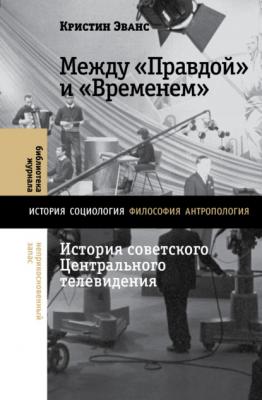Между «Правдой» и «Временем». История советского Центрального телевидения. Кристин Эванс
Читать онлайн.| Название | Между «Правдой» и «Временем». История советского Центрального телевидения |
|---|---|
| Автор произведения | Кристин Эванс |
| Жанр | |
| Серия | Библиотека журнала «Неприкосновенный Запас» |
| Издательство | |
| Год выпуска | 2016 |
| isbn | 9785444823804 |
Конец ознакомительного фрагмента.
Текст предоставлен ООО «Литрес».
Прочитайте эту книгу целиком, купив полную легальную версию на Литрес.
Безопасно оплатить книгу можно банковской картой Visa, MasterCard, Maestro, со счета мобильного телефона, с платежного терминала, в салоне МТС или Связной, через PayPal, WebMoney, Яндекс.Деньги, QIWI Кошелек, бонусными картами или другим удобным Вам способом.
